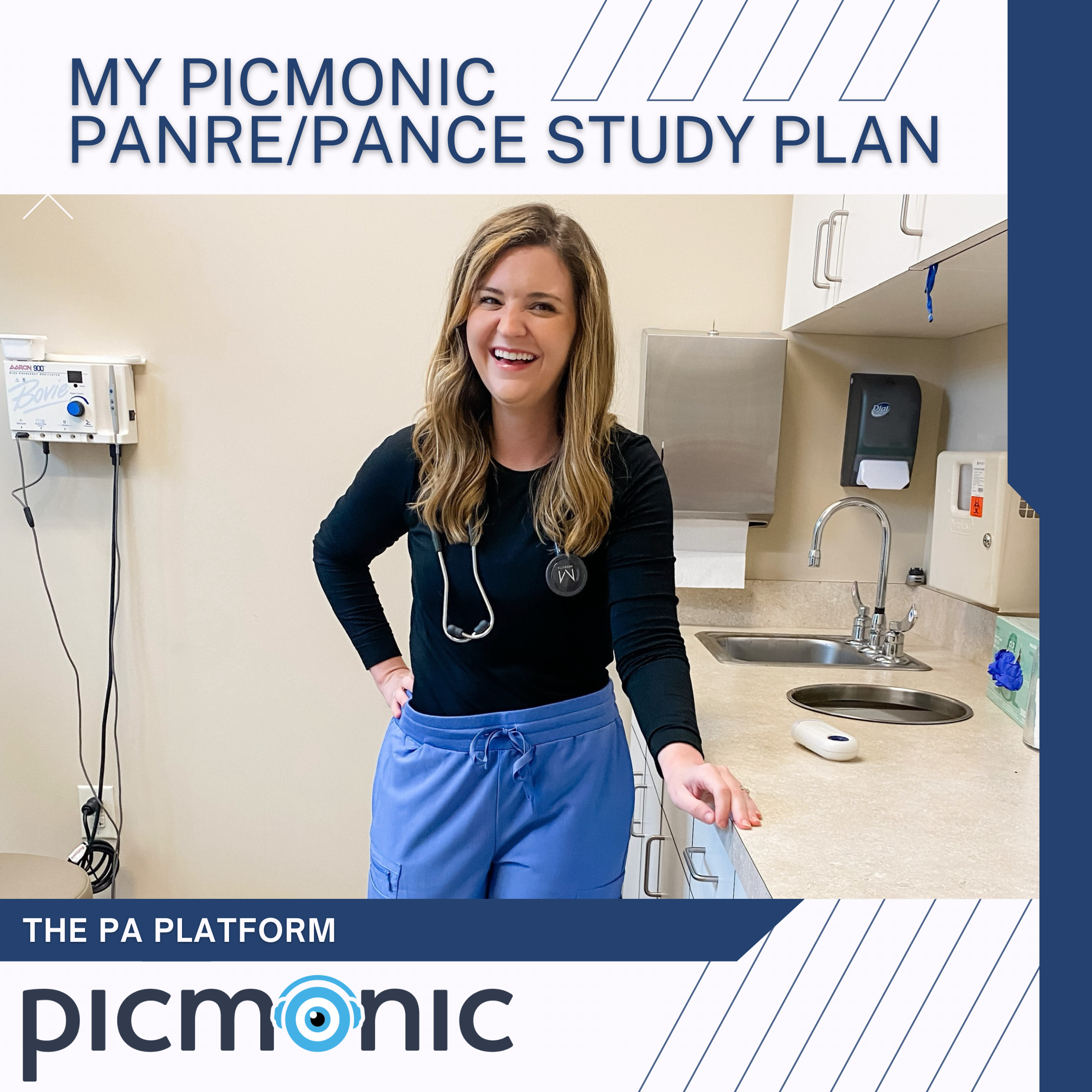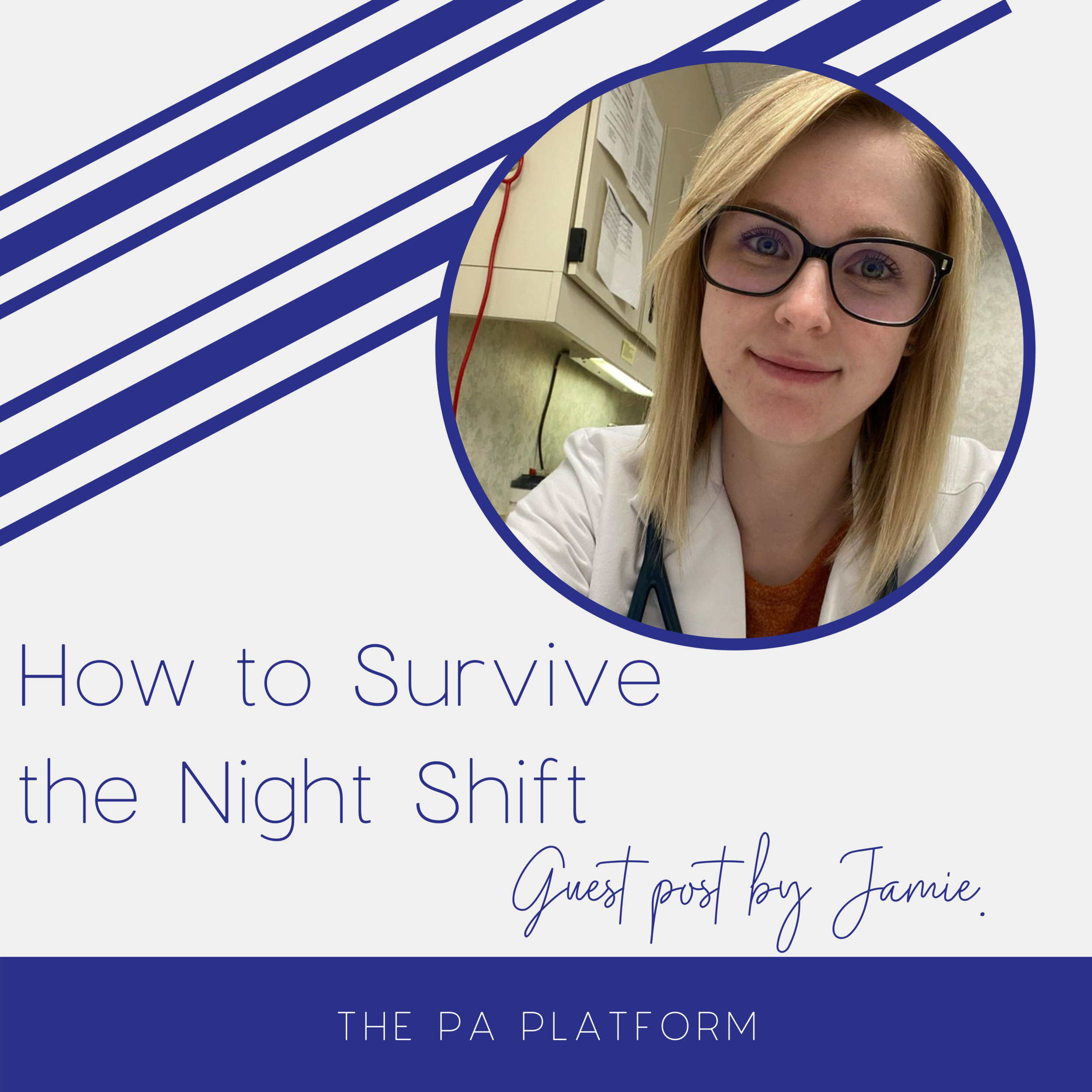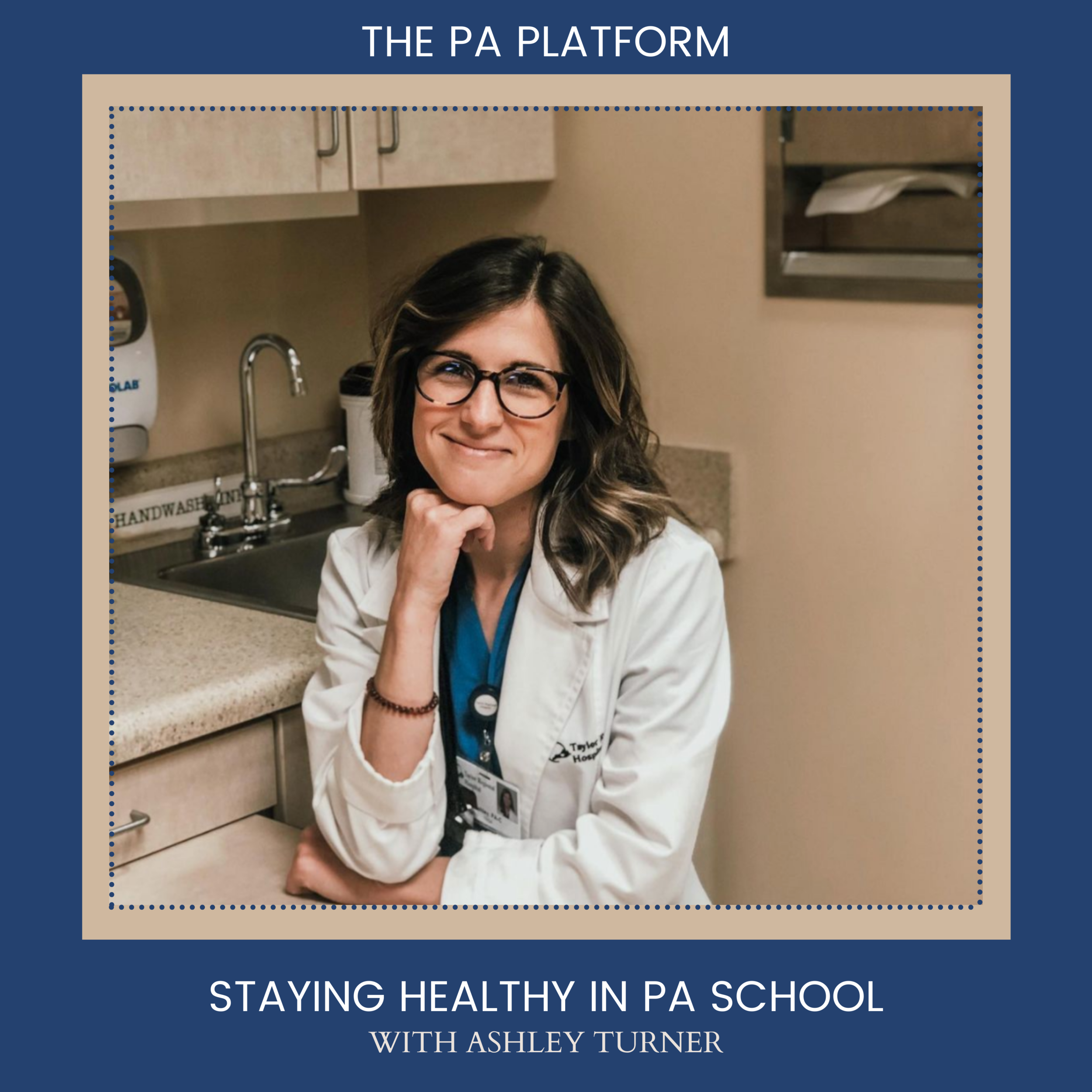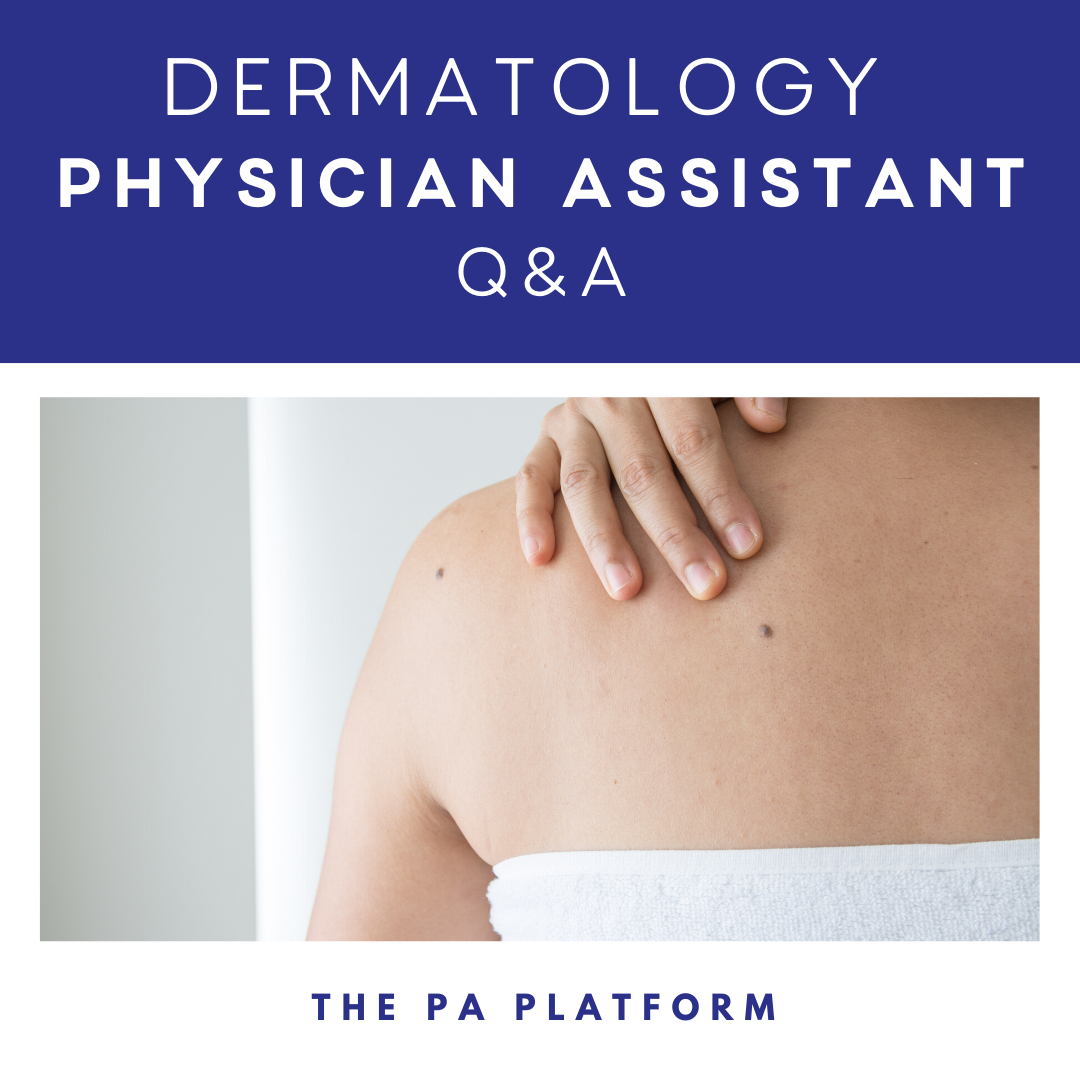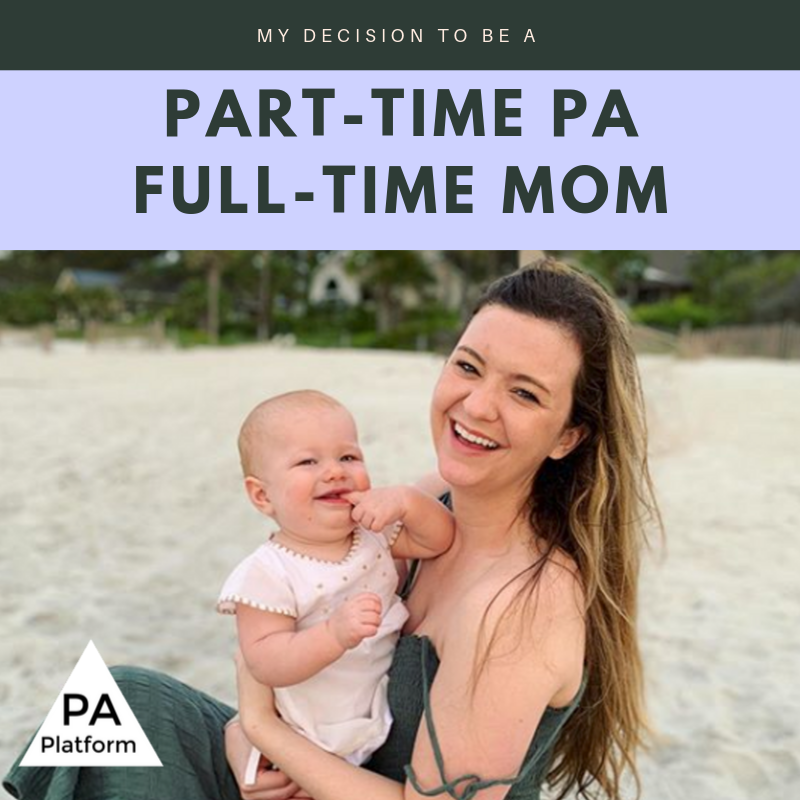As you may have heard, I recently made the decision to go part time at work and I wanted with you how and why I decided to go part time, what life looks like now and how I’ve been transitioning this week into this new role.
My Background
Before I start, I want to back track and share a little bit about my experience. After graduation, I went straight to working in dermatology. My husband was in medical school at the time, so he didn’t get any time off. I couldn’t take a vacation or anything I just had to get out there and start making money. I went straight into my dream job and I loved it. I started off working four days per week, Monday - Thursday, which was awesome. It was a pretty good schedule and I was either home or leaving the office by 5pm. They eventually asked me to start coming in on Fridays also which worked out because I figure, if I’m not making money, I was probably out spending it plus my husband was so busy with med school and wasn’t home a lot. I started working Friday mornings and it was great. I did that for a while and as you may know, dermatology is a very busy speciality. A lot of times, I would be seeing 30-35 patients all day long which I was fine with. I like working hard and staying busy -- I’d rather be busy than bored.
Then Comes Baby
Everything changed once I had my daughter last year. I always knew that when I would be pregnant and have a baby, I would go back to work and not cut down on hours. I have friends who are PAs, who work in other jobs and who are stay-at-home moms so I have seen all sides of it. I always thought that stay-at-home moms had it so easy and I just knew I would never be able to stay at home all day but then I had my baby. Once I had her, it’s hard to explain unless you have had a child, just how much everything changes. I know that everyone says it, and yes it is cliche, but it’s so true. I took 11 weeks of maternity leave, which I highly recommend to use as much as you can. I had some postpartum complications and had to go back to the hospital for a week. By the time I got over all of that, I really only had about 9 weeks with her.
Time to go Back to Work
When the time came for me to go back, I felt like we were finally getting our groove. I was breastfeeding which is NOT easy! No one teaches you how to do that so it was hard and now (TMI) I had to pump at work. A lot of transitions at once. At this point, my husband is in residency and his schedule is all over the place. I did ask to go back to four days a week while I was pregnant. My work and I came up with a compromise and I worked one Friday per month which then made things complicated with child care.
It’s very difficult to find someone to trust with your child, if you’ve never done that before. Luckily, I had my mother-in-law helping. We found a great nanny who was with her two days a week as well. When it came time for me to go back to work, I was a mess. I was crying and losing my mind. The day I was supposed to go back, I just remember I stood at the door sobbing and begging my husband not to make me go, to not leave her. This feeling was so strange to me because that is not who I thought I would be. I thought that after four weeks, I would be like, get me back to work, I’m bored, I don’t want to sit around this house all day . Now, I literally wanted to sit on the couch with my baby on me.
Adjustment Period
I went back to work and everyone told me that I would adjust and get used to it but for the first six months, I was balancing a lot. I was working full time trying to figure out this mom thing, and still doing PA Platform stuff, it sometimes kind of felt like being a single parent with my husband in residency. We had a lot of conversations usually with me crying about just how overwhelmed I was. I read a bunch of books, a really great one, Stretched Too Thin, was really helpful. I talked to my working mom friends who have had kids, my stay-at-home mom friends and my family and they all knew that I was struggling with balance.
We hear a lot about the flexibility of the PA profession and the great work life balance but I found that there is no balance. You’re never going to have everything equal. If you’re trying to equalize it, there’s always going to be something that is pulling more of your energy or attention. You have to decide what if a priority or not. So it became going to work, coming home, being exhausted and not being able to give my family the energy that I needed. Also, if you have ever had a kid, there is this thing called the witching hour and it happens right around 5pm. I just wasn’t getting the best time with my baby. In the morning, I would get up, get her ready, get her food going, leave, come home, and then she is exhausted, tired, angry and crying which makes me want to cry. It wasn’t a good system that we had. It did get better. After about six months in, I was having these weekly anxiety driven fits but my husband was like, I don’t know how else to help you but something has to change.
Turning Point
We started talking about if we could make it work if I went part time, which was a long discussion. It wasn’t something that happened immediately. We had to look at finances, childcare, his schedule, my schedule...what would this actually look like? Would I be okay if I was home more? Ultimately what it came down to was my happiness. I don’t have a lot of hobbies outside of The PA Platform and shopping. At the time, I found the most joy and happiness when I am hanging out with my family, whether that was my husband or my baby or preferably both. That’s when I am happiest and when I came to this decision, I knew in no way could I see myself ever regretting spending more time with them. I could see myself regretting working more if I didn’t have to.
It was just exhausting me to the point where I would get home on Thursdays couldn't get off the couch. Friday was a day to just recover, Saturday I'm actually trying to get stuff done and by Sunday is time to start over. It's just this constant grind, which I know everyone does and I admire everyone who does all this because it is not easy and I've learned that.
We looked at it and decided it was probably possible. I was going to try to wait till the end of 2019 because my work was going through some changes and transitions which I wanted to try to help them through that. In June, my nanny quit. She ended up being a full time job somewhere else which I totally understand because benefits and all of that. She gave us a month's notice and by then my husband finished residency, which his schedule as a hospitalist is seven on seven off. So when you look at that on a calendar with my schedule, if I'm working five days a week and he's not home until late, we really would only have like two to three days together every other week and that's not what I signed up for. That's not what works for my life, what works for me, when it comes to marriage, I want to see my husband and spend time with him.
Telling My Employer
I went to them at work, which was not an easy conversation. I think leaving a job is kind of like a divorce and my situation was a little different because this is my only job I've ever had it been there for five years. There wasn't anything wrong, really and if there was it would have been a different situation. If you know you're feeling like you've been abused or used by a job and you're ready to leave. This wasn't that this was I wanted to stay but ultimately the job that they needed for a PA was a full time job. We tried to talk through some compromises, but it just wasn't working. Ultimately, I had to put in my resignation letter and that was really hard. I was really emotional about it even leaving, just because I had a great relationship with my supervising physician -- she was an amazing teacher, we had great communication, a great flow, and to leave that is hard.
No Regrets
But like I said, I can never see myself regretting being home more with my baby. Another thing that I kind of told them is I could see the difference in her when I was with her more. If I had a longer break of four or five days, me and my baby had a much better relationship than when I, running out the door and running in the door to do bath time and dinner. She is a very strong willed one year old and likes to kind of push back and bump heads with me and she does it the most with me instead of anyone else. When we actually have more quality time, she tends to be a lot more sweet towards me. I felt like it was important for me to be there. I don't want to miss anything in her life -- I don't want to miss her events and I just as much as I can be there. This is not who I thought I would be, yet here we are.
Finding a Part-Time Job
I had working parents growing up my parents were teachers. I think they were great examples for me and I don't ever see myself not working completely. I will always be a PA and I think I'll always practice clinically. What ended up happening was I turned in my resignation, and before I even turned it in, they had four resumes. I started pulling out some feelers with some drug reps and other PAs about jobs and within 24 hours, I had a new job in derm with the opportunity to make my own schedule, however I want it. That does show you the flexibility and the work and the desirability of a PA especially with experience.
I'm very, very excited about my new job I started this week, I've only been one day. But next week I start seeing patients and it's different, they do things differently which isn’t necessarily a bad thing. I think getting to see different ways of how offices work will just make me a better provider overall. Overall, it's been a good transition, we'll see how it continues to go.
Are You Considering Going Part-Time?
I would encourage you, if you think you might want to be part time, at least explore it. I mean, put numbers on paper, look at it. Go to your work, see what their thoughts are on you going part time. Also, always be looking for jobs -- that's something that I heard once at a conference, I think it's great advice, like never stopped looking for jobs, because you don't know what's out there. Another thing is, I was very surprised by how supportive my patients were. They were all very excited for me, even though I was leaving, and I couldn't tell them where I was going. I would tell them, But I mean, “next time, you're going to see someone else because I am leaving. I’m going part time to stay home with my baby more” They were all so supportive and told me how excited they were for me -- that was really sweet. I did feel you know that I'm abandoning them to some degree, but they were all very understanding of why I was making the change, and very supportive of it.
Are you thinking about whether you should go part time or what that looks like? Feel free to send questions my way, because it was not an easy couple months going through that transition. I am very, very glad that I made that decision. I'm working two or two and a half days every week. I have a really great supportive practice who is very family oriented. So I'm really, really excited about that opportunity. Thank you so much for following along on this journey!



